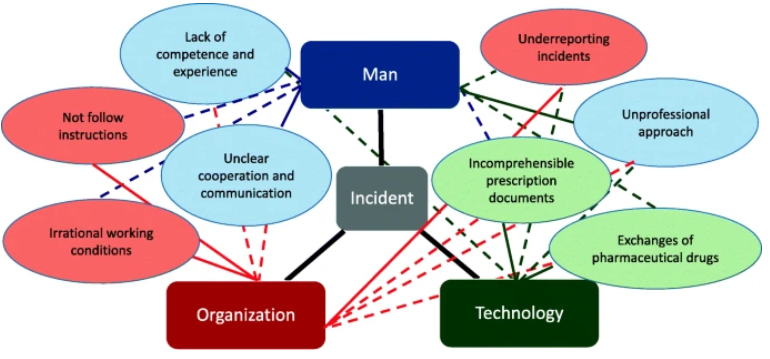A Study to Assess Efficacy of Educational Programme Regarding Knowledge And Awareness about Medication Error Among Nurses Working in Tertiary Helath Care Center
Main Article Content
Abstract
Medication errors can happen at any point during the process of prescribing, recording, dispensing, preparing, or giving a drug in a hospital, because it takes a team of people working in different areas to use drugs safely. OBJECTIVE: To find out how much people know and understand about medication errors, how well educational programmes about medication errors work, and if there is a link between knowledge and awareness and certain socio-demographic variables. METHODOLOGY: 50 nurses were chosen at random for a quantitative study (KH&MRC, karad). One group, pre-test, and test afterward. Self-structured Questionaries were used to test how much people knew and how much they were aware of. Consent was given with full knowledge. Both descriptive and inferential statistics were used to look at the data. RESULTS: Most nurses were between 22 and 30 years old, had nuclear families, lived in cities, had a diploma in nursing, had worked for 1 to 5 years, and worked in the ICU. At a level of p0.0001, the paired t test value was 5.727. The average difference between how much you knew before and after the test was 2.5. The difference between the score on the pre-test and the score on the post-test is big and statistically very important. At a level of p 0.0001, the paired t-test value was 21.557. The average difference between the level of knowledge before and after the test was 1.68. The difference between the knowledge score before and after the test is high and statistically very important. There wasn't a statistically significant link between levels of knowledge and any of the sociodemographic factors except for working ward. 33.263. No statistically significant link was found between awareness levels and any of the demographic variables. CONCLUSION: The results of the study show that the educational programme given to nurses is making them more knowledgeable and aware. The study's conclusion is that the nurses' level of knowledge and awareness had
Article Details
References
Barker KN, McConnell WE. The problems of detecting medication errors in hospitals. Am J Hosp Pharm. 1962;19:360_69.
Cohen MR, ed., Medication Errors: Causes and Prevention. Washington, DC: American Pharmaceutical Association. 1999.
Dalton-Bunnow MF and Halvachs FJ. Computer-assisted use of tracer antidote drugs to increase detection of adverse drug reactions: A retrospective and concurrent trial. Hosp Pharm. 1993 (Aug); 28:746-749, 752-755.
Barker KN, Pearson RE, Hepler CD et al. Effect of an automated bedside dispensing machine on medication errors. Am J Hosp Pharm. 1984; 41:1352-8.

